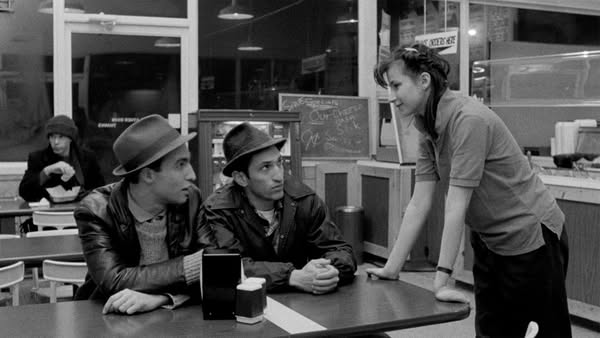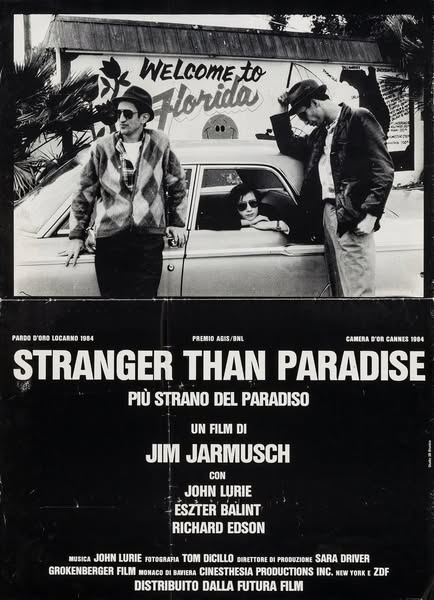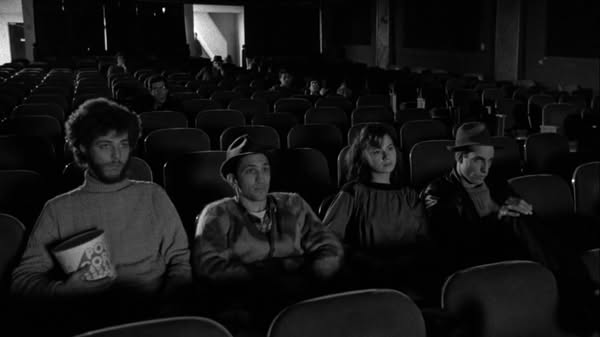Stranger Than Paradise (1984)

Stranger Than Paradise (1984) is a critically acclaimed independent film directed by Jim Jarmusch. This black-and-white film is notable for its minimalist style, deadpan humor, and exploration of themes such as alienation, friendship, and the American experience.
The story follows Willie (John Lurie), a New York City-based slacker who is initially indifferent to life. When his cousin Eva (Eszter Balint) arrives from Hungary, he reluctantly agrees to take her in. The film chronicles their interactions and the development of their relationship over a series of vignettes that capture the essence of their mundane lives.

As the narrative unfolds, Willie and Eva are joined by Eddie (Richard Edson), a friend who introduces a sense of spontaneity and adventure. The trio embarks on a road trip to Florida, where they seek an escape from their bleak existence. The film’s episodic structure and slow pacing reflect the characters’ existential ennui and their search for meaning in a seemingly indifferent world.
Jarmusch’s distinctive directorial style is evident throughout, characterized by long takes, minimal dialogue, and a focus on atmosphere rather than traditional plot development. The film’s use of stark black-and-white cinematography enhances its contemplative mood, allowing viewers to immerse themselves in the characters’ experiences.

Stranger Than Paradise showcases Jarmusch’s talent for blending humor with poignant observations about life. The film’s dialogue is often laced with deadpan wit, highlighting the absurdity of everyday situations. The characters navigate a world filled with cultural disconnection and uncertainty, reflecting the broader themes of displacement and identity.
The film received critical acclaim for its originality and impact on independent cinema. It won the Camera d’Or at the Cannes Film Festival and has since become a landmark of the genre, influencing many filmmakers with its unconventional narrative style.

In summary, Stranger Than Paradise is a unique and thought-provoking film that captures the essence of alienation and the search for connection in a modern world. With its minimalist approach, memorable performances, and sharp humor, it remains a significant work in the landscape of American independent cinema, showcasing Jim Jarmusch’s distinctive voice and vision.











